Breast Cancer Action’s 2014 Think Before You Pink® campaign is a direct call to STOP THE DISTRACTION of pink ribbon marketing and culture. We are calling attention to the countless ways the breast cancer industry, and the culture of pink it has spawned, distract attention away from the bold action we need to successfully address and end the breast cancer epidemic and to achieve health justice for all women in all communities.
Pink ribbon culture distracts from meaningful progress on breast cancer in six fundamental ways:
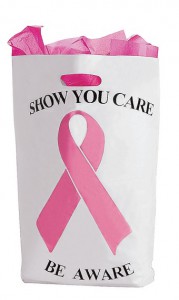 1. Pink ribbon products spread empty awareness.
1. Pink ribbon products spread empty awareness.“Awareness” has failed to address and end the breast cancer epidemic. Who isn’t aware of breast cancer these days? Pink ribbon trinkets on store shelves that promote “awareness” ultimately change nothing. We have more than enough awareness, but not nearly enough action that will make a significant difference to whether women get breast cancer or survive it. By making the public think “awareness” is the end goal, pink ribbon culture defuses anger about breast cancer and its devastating impact, and distracts us from the meaningful actions that will achieve health justice for us all.
Instead of more meaningless gestures that defuse righteous anger and distract us from the real issues, we need bold action to address and end the epidemic.
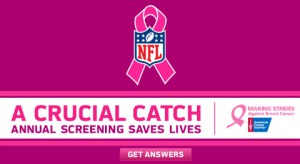 2. Pink ribbon promotions spread misinformation.
2. Pink ribbon promotions spread misinformation.Whether by over-inflating women’s risk of developing breast cancer, spreading the myth that “early detection is your best protection,” focusing on a five-year cure rate for a disease that remains a risk throughout a woman’s life, or other ways of cheerfully fudging the statistics, many pink ribbon promotions fail to tell the whole truth. These inaccuracies allow pink ribbon marketers to manipulate consumers’ emotions through fear-mongering and false promises—in order to sell more products.
Breast cancer campaigns must offer evidence-based information that does not fuel fear or offer empty promises in the attempt to sell pink products.
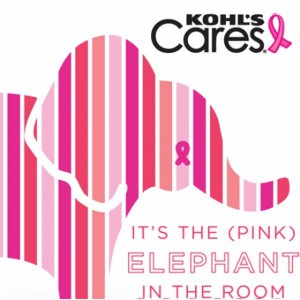 3. Corporations exploit concern about breast cancer for profit.
3. Corporations exploit concern about breast cancer for profit.Each October, marketers take advantage of people’s sincere concern about breast cancer to make money and generate good publicity. Companies sell products, make profits, and seek customer goodwill by claiming to care about breast cancer. Yet, most of these promotions ultimately benefit corporations far more than they help women living with and at risk of breast cancer. By tapping into our generosity and genuine desire to help, these companies avoid transparency about where the pink ribbon money goes and too often leave consumers unable to accurately evaluate the promises made in product advertising.
Companies and charities must honor people’s good intentions with full transparency and accountability in their breast cancer fundraising and marketing.
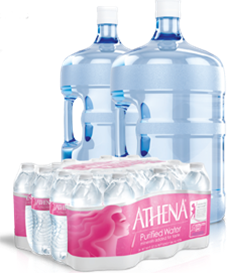 4. Some pink ribbon products are linked to causing breast cancer.
4. Some pink ribbon products are linked to causing breast cancer.Years ago, Breast Cancer Action came up with a term for this, pinkwashing: the outrageous corporate practice of selling products linked to an increased risk of breast cancer while claiming to care about (and profiting from) breast cancer. It is outrageous and deeply hypocritical for companies to make money and gain customer goodwill from products that increase the risk of the very disease they claim to care about!
Companies that claim to care about breast cancer should make sure their own products and services don’t increase women’s risk of breast cancer.
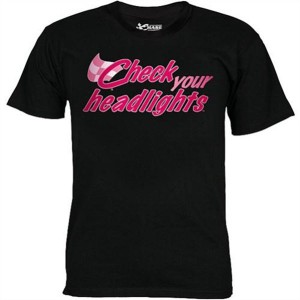 5. Pink ribbon promotions often degrade women by objectifying and sexualizing women’s breasts and bodies.
5. Pink ribbon promotions often degrade women by objectifying and sexualizing women’s breasts and bodies.From “save the boobies” to “save the ta-tas” to “save second base,” campaigns like these demean and insult women—and distract from the true focus of saving women’s lives. They highlight narrow standards of beauty (thin, white, able-bodied, and young), depict women as coy sex-objects and too often promote the fantasy of “perfect” breasts. These sexy/cute campaigns hide the lived experiences of women in all their diversity and complexity.
We must honor women’s rich complexity and full diversity, rather than obsess over narrowly defined body parts as the focus of breast cancer campaigns.
 6. Pink ribbon culture obscures the harsh reality of breast cancer
6. Pink ribbon culture obscures the harsh reality of breast cancerThis is done by creating a single story of triumphant survivorship based on positive thinking, beauty tips, and sanitized, carefully chosen images of women. Breast cancer is not pretty and pink, and many women who “fight hard,” “fight like a girl,” and try to “beat breast cancer” develop metastatic cancer and still die from the disease. Breast cancer is only profitable when it’s palatable, and the pink ribbon covers up the devastating, harsh reality that so many women and their loved ones are dealing with.
We must value all women living with and at risk of breast cancer and recognize the hard realities of breast cancer, including and especially metastatic disease.
Each October across the country, all of us face an endless tidal wave of pink ribbon products. This flood of products and the widespread culture of “pink” have hijacked the breast cancer movement. Where once the stated aim of the pink ribbon was to draw attention to women with breast cancer, now the pink ribbon itself is the center of attention and overshadows the women living with, dying from, and at risk of the disease. After 20 years of pink ribbons and awareness campaigns, the pink ribbon is now a distraction, diverting attention away from the critically important work of addressing and ending this breast cancer epidemic.
Despite all the awareness and all the money raised, breast cancer remains an urgent public health crisis and a critical social justice issue. While corporations make billions off the disease, we have not seen nearly enough progress in breast cancer treatment, prevention, survival, and inequities. Today, 3 million women in the U.S. are living with breast cancer. Up to one-third of all breast cancers will metastasize, even when found in the early stages. Black women are still 40% more likely to die of breast cancer than white women. And each year, 40,000 women die of breast cancer despite all the awareness and pink ribbons.
This October, we’re calling it like is – the huge and overwhelming pink ribbon culture is distracting us from effectively addressing and ending the breast cancer epidemic. We challenge the breast cancer industry to Stop the Distraction! Join us and push back against pink.
Take action! Join Breast Cancer Action’s Think Before You Pink campaign to Stop the Distraction this October.